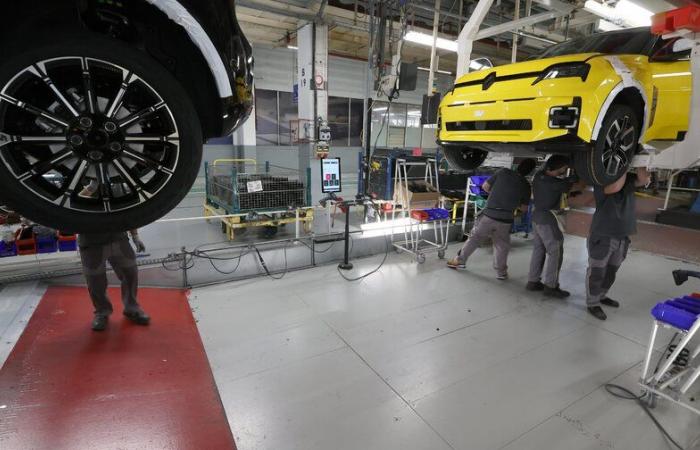Enough to impress the most optimistic and delight the Cassandras. The future of the electric car appears less bright than expected. This is the point of view of Luca de Meo, general director of the Renault group. In an interview given to the Flemish newspaper De Tijd/L'Échotaken up by gocar.be, the big boss of the diamond brand displays a gloomy outlook on the future of battery models.
If electric cars sell poorly, it is because of their high price. Apart from the recent Renault (R5 E-Tech), Citroën (ë-C3) or Fiat (Grande Panda) city cars, at less than 25,000 euros, the prices of more versatile vehicles or vehicles adapted to family needs remain prohibitive for a large part of the households. Particularly those of the middle classes whose purchasing power has collapsed. For the Renault boss “the automobile industry will do well if the middle class does well”. Enough to encourage manufacturers to offer models better suited to demand with lower prices. But according to the Renault boss, lowering prices would be a pipe dream.
A 40% increase in prices
Luca de Meo even predicts a significant increase of 40% in prices for battery models by 2030. A hell of an inflation, which would not be able to curb the expected drop in the price of batteries, in particular thanks to LFP (Lithium Iron Phosphate) technology. Already considered an expensive product, the electric car would then be unaffordable for the vast majority.
The Renault manager points the finger at the European Union, which, although it is banking on 100% electrification of cars by 2035, is imposing increasingly strict regulations. According to Luca de Meo, “These new standards will require significant investments and will entail additional costs for manufacturers”. And to quote “the introduction of eight to twelve new regulations each year until 2030”increasing the pressure on players already in difficulty. This regulatory overload risks increasing the prices of electric vehicles, while consumers expect lower prices.
China is ten years ahead
According to the boss of the diamond brand, compliance with these standards “will lead to a 40% increase in the cost of producing cars”. And to specify that a “a quarter of the Renault group's R&D budget will be devoted to adapting vehicles to new regulations”.
And to stigmatize the European executive whose leaders “thought that the world and its economic model were frozen”. According to him, politicians would not have seen China coming and “his desire to become a leader rather than the little hand in the big workshop of the world”. The reality has since surpassed predictions. The Middle Kingdom controls the entire production chain of electric cars from land extraction to vehicle construction.
China alone has 70% of global production capacity. Result, “Chinese raw material suppliers sell to local manufacturers at their production costs, while foreign manufacturers pay full price”explains Luca de Meo. And to point out China's 10-year lead over the rest of the world in terms of electric vehicles. To catch up, the boss of Renault recommends a new policy with a “strategic” State capable of helping the development of the sector.
Develop more infrastructure
In his Prévert inventory, the Renault boss points out the insufficient development of charging infrastructure. Even if there is a surge today, it should be “six to seven times faster”. This deployment must be « supported by governments and financial institutions, because charging stations are profitable tools as soon as they are put into service »he insists.
Luca de Meo indicates that the problem lies in the fact that there is no more money in the European markets to finance the automobile. European regulations are not oriented towards entrepreneurship and supporting the economy, which discourages current and potential investors
Partnerships with Asian manufacturers
In order to stay in the race, Luc de Meo recommends increase partnerships with Asian manufacturers. But the Italian boss deplores that this solution can only be achieved with foreign manufacturers and financing. The authorities must support strategic sectors, undertake the development of identified future ecosystems and consolidate existing positions and values.
The boss of Renault calls for the creation of “the Airbus of electric”, and asks European manufacturers to unite their efforts to face the surge of Chinese vehicles on the old continent. Without having any illusions about the success of this project, in particular due to the absence of investors, discouraged by European constraints.
The Renault boss tirelessly continues his work as a lobbyist. The former president of the association of European manufacturers, after having deplored the financial impact of the CAFE standards, continues to campaign for the postponement of the all-electric deadline beyond 2035. Discussions around the review clause planned for 2026 already seem unofficially well underway.






